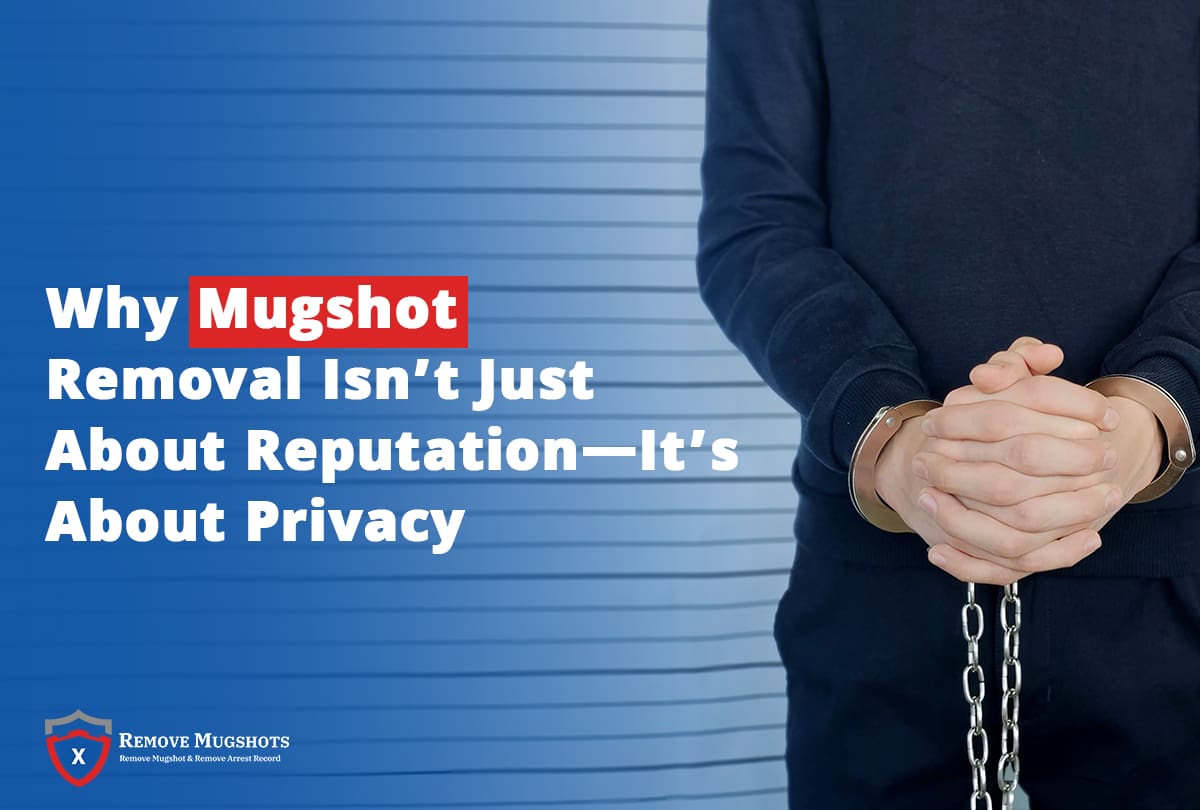Why Mugshot Removal Isn’t Just About Reputation—It’s About Privacy
January 1, 2025 Mugshot Removal

Mugshots often capture a moment of vulnerability, becoming a lasting reminder of an individual’s legal troubles. These images can follow people for years, significantly affecting their privacy, online reputation, and future opportunities. The widespread accessibility of mugshots raises questions about public record laws and the impact of having such information available online.
What is a Mugshot?
A mugshot, often called a booking photo, is taken by law enforcement during an arrest. These images typically include personal details such as the individual’s name, arrest date, and charges. They are part of public records and serve as documentation of the arrest process.
In today’s digital world, mugshots often surface on public databases and search engine results. This widespread visibility can lead to long-term consequences, as employers, landlords, and others can easily find them with a simple online search. Such exposure can damage both reputation and privacy.
Why Are Mugshots Taken and Published?
Mugshots serve multiple purposes, primarily for law enforcement and public awareness. They document arrests and provide transparency within the justice system. However, when these images are published online, they can lead to unintended consequences.
For instance, mugshot websites often host these images indefinitely, even if charges are dropped or cases are resolved. As a result, outdated information continues to harm individuals during background checks and online searches, hindering their ability to move forward.
Are Mugshots Public Records?
Yes, mugshots are classified as public records in most jurisdictions, making them accessible through law enforcement agencies. They are also often indexed by search engines, which makes them easily discoverable.
While this classification promotes transparency, it also poses challenges for individuals whose mugshots remain online long after their legal matters are resolved. This often leads to unfair judgments and ongoing stigma, especially when employers or landlords encounter outdated or irrelevant information.
Why Is Mugshot Removal Important?
Mugshot removal is vital for safeguarding privacy and restoring online reputations. When arrest records and mugshots are readily available online, they can block personal and professional opportunities, leaving individuals with limited options for moving forward.
Key Reasons for Removal:
- Protecting Privacy
Mugshots expose sensitive personal details that can harm reputations and relationships. Removing these images helps safeguard privacy and reduces risks like identity theft and harassment. - Preventing Discrimination
Outdated or misleading mugshot records often lead to unfair treatment in employment, housing, and social situations. Removing these records helps individuals avoid bias based on past mistakes. - Avoiding Online Extortion
Some websites exploit mugshots for profit, charging fees for their removal. Addressing this issue protects individuals from predatory practices while allowing them to regain control of their personal information.
How to Remove a Mugshot from the Internet
Removing a mugshot requires persistence and a clear strategy. Here are the main steps:
1. Contact the Website Directly
Start by reaching out to the website hosting the mugshot. Many sites have removal request forms that require you to provide the URL of the image and supporting documents, such as proof of expungement. Maintaining a respectful tone can improve your chances of success.
2. Work with a Reputation Management Company
Professional reputation management firms specialize in removing mugshots and other sensitive content. These experts navigate the legal and technical challenges involved, helping you regain privacy and protect your online presence. Services like EraseMugshots.com can expedite this process effectively.
3. Seek Legal Action
When informal requests fail, legal action may be necessary. Expunging your criminal records can provide the legal basis for requesting mugshot removal, especially in states with strong privacy protections.
What Are the Laws Surrounding Mugshot Removal?
Mugshot removal laws differ across jurisdictions. Some states, such as Florida, California, and New York, allow individuals to request the removal of mugshots under certain conditions. These laws often emphasize privacy and address the lasting consequences of public records being accessible online.
At the federal level, privacy laws provide limited protection. The lack of consistent regulations across states makes it crucial to understand the specific laws in your jurisdiction to navigate the removal process effectively.
What Can You Do to Protect Your Privacy?
Proactively managing your online presence is essential to safeguarding your privacy and reputation. Here are some steps to reduce the impact of mugshots and other sensitive information:
1. Seek Expungement
If eligible, expungement clears certain offenses from public records, providing a legal basis for mugshot removal. This can be a crucial first step in reclaiming your online image.
2. Monitor Your Online Presence
Regularly search for your name to identify harmful or outdated content. Use reputation management tools to track mentions and address issues as they arise.
3. Stay Informed About Privacy Laws
Understanding your rights under privacy laws empowers you to take informed action. Staying updated on changes in mugshot removal regulations can help you protect your reputation effectively.
Conclusion
The process of mugshot removal goes beyond reputation management—it is also about protecting privacy and ensuring fair treatment in both personal and professional contexts. Whether you choose to contact websites directly, seek professional assistance, or pursue legal action, taking control of your online presence is an essential step toward moving forward with confidence.



